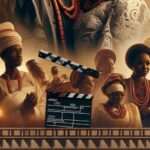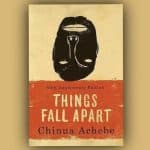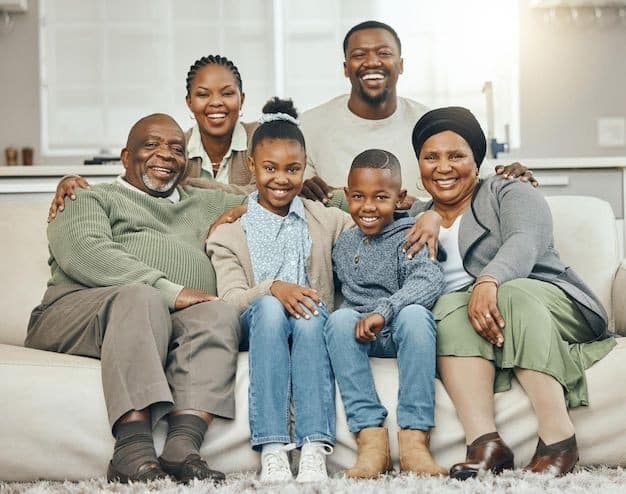In African culture, family is not just in its nuclear sense of parents and biological children, the family network is extended. It entails extended families and their indigenous communities. Here, we are talking about family members like uncles, aunts, nieces, nephews, grandparents and even marital relations.
Membership in families differs across different African communities, from adopted and fostered children to house workers, as among the Baganda people of Uganda. The simplicity of the African family culture is so dynamic that even strangers become family. For a lot of Africans, family is not just some humans that you happen to be born with, family is life.
However, the broader question this article seeks to answer is how the African culture impacts our lives and the ties between our families and communities.
Table of Contents
How the Family Makes Up a Community
The interwoven relationship between family and the community is that the family eventually becomes the community. The family is a unit of production, reproduction and accumulation.
Moreover, the family and community are not just a social entity. They are the very definitions and meanings of life. Central to the rich cultural heritage of Africans is the profound importance placed on family and community ties.
Ready to meet passionate readers or writers like you? Join our WhatsApp community; it’s the best place you can be.
How the African Family Impacts Our Lives
A typical African community is the nucleus around which the lives of different families revolve. It is unlike the Western concept of family. The extended nature of the African family serves as a form of support and heritage to its members.
These family ties surpass blood relations. It includes people who are not necessarily family but are considered as such. Their roles and impact are what make them family. This uncommon approach to deciphering family ties in African culture is commendable. It is a distinct feature of the African family heritage.
It encourages the formation of deep-rooted identities and strong community ties. It gives one a sense of belonging and a place of identity even if that person is not originally from there. From tender ages, children are taught to learn about their culture, their history and lineage. They are also taught to recognize in their clan both patrilineal and matrilineal family ties.
However, in African culture, marriage contributes as a source of preservation and the strengthening of family ties. It is said that you do not only marry a person, but you marry the family and become a part of them.
The African Family and the Community: The Ties
In Africa, the community is deemed an extension of the family. Family ties transcend into community ties because a community is seen as one person having the same ancestry. Community ties provide a firm structure for the culture and heritage of the African family to thrive.
In ancient times, the structure of the community was more closely knitted and it included people you could rely on in times of need. The adage “It takes a village to raise a child” encapsulates the collective responsibility the community holds in nurturing and guiding its members.
This sense of collective responsibility also extends to economic and other traditional activities. In Kenya, community members come together to do communal tasks that include self-help events, fundraising or even development activities. This practice is known as “Harambee.” These practices not only enhance productivity but also strengthen social bonds.
Celebrations such as births, marriages, and cultural festivals are communal affairs that bring people in the community together to share in each other’s joy. Conversely, during times of sorrow, such as illness or death, the community rallies around to offer support, demonstrating solidarity and empathy.
For instance, the Yoruba people of Nigeria celebrate the “Eyo festival,” a cultural event that includes music, dance, and showcasing of masquerades. This festival is not just for entertainment but a means of preserving the rich Yoruba cultural heritage and fostering a sense of unity among the community.
These community gatherings provide a platform that encourages cultural preservation. The effect is that cultures are being transmitted and the new generation is availing themselves of the Nigerian traditions and heritage of their people.
In every typical African community, storytelling, folklore, music and dance are integral parts of African culture. They help reinforce shared values and traditions.
The African Family, Community and Their Cultural Heritage
In African families and communities, roles and responsibilities are clearly defined and respected. Elders are revered for their wisdom and experience. They serve as custodians of cultural traditions, passing down knowledge and guiding the younger generations. In return, younger family members are expected to show respect and provide care for their elders.
For instance, in a Yoruba family, the Olori Ebi is the head of the family who must be consulted before important family decisions are made. This also applies to the Igbos where the okpara who is the first son is accorded the same respect as his father – the Obi of the family, if he dies.
These family ties have also contributed to the recognition of customary laws in the Nigerian judicial system. Judicial notice of the customs and traditions of Nigerians has been taken and is enforced when necessary, provided that they meet certain requirements.
In respect of family ties, several court decisions have been held in dealing with family property, the consent of the head of the family and their principal members. The African family has continued to be a source of strength to the preservation of our culture and traditions as Africans.
Even from the names of our children, we give them a sense of belonging to their culture. It is the identity of kinship. The family comes together to make up the community and the community in turn upholds the cultural heritage of the members.
Do you love this post and won’t mind getting more Africa-related insights dropped into your inbox? Good! Simply subscribe to our newsletter today and let’s keep you updated.
Conclusion
While the importance of family and community ties remains steadfast, modern African societies face challenges that impact these traditional structures. Urbanization, migration, and globalization have introduced new dynamics that require adaptation.
As Africa continues to evolve, with many leaving the continent for other countries, there is a weakening in the bonds of culture that hold us together as a people. In the coming years, the fear is that we might no longer have people who understand our cultures and traditions. There is also a possibility that we might not be able to pass this cultural heritage to the next generation just like it was handed down to us.
This is why we must embrace African culture and preserve our family and community ties. It is crucial to uphold these values so that they do not become relics of the past but the basis for our future. Our culture is our bond and we must find a balance between modernity and preserving our culture.
Edited by Priscilla Ajayi.
About Author
- Chovwe is content writer and a Fashion Designer. She's also a Chartered Mediator and Conciliator. She's an advocate for peace and loves art. She owns a fashion brand and is very passionate about what she does.
Latest entries





